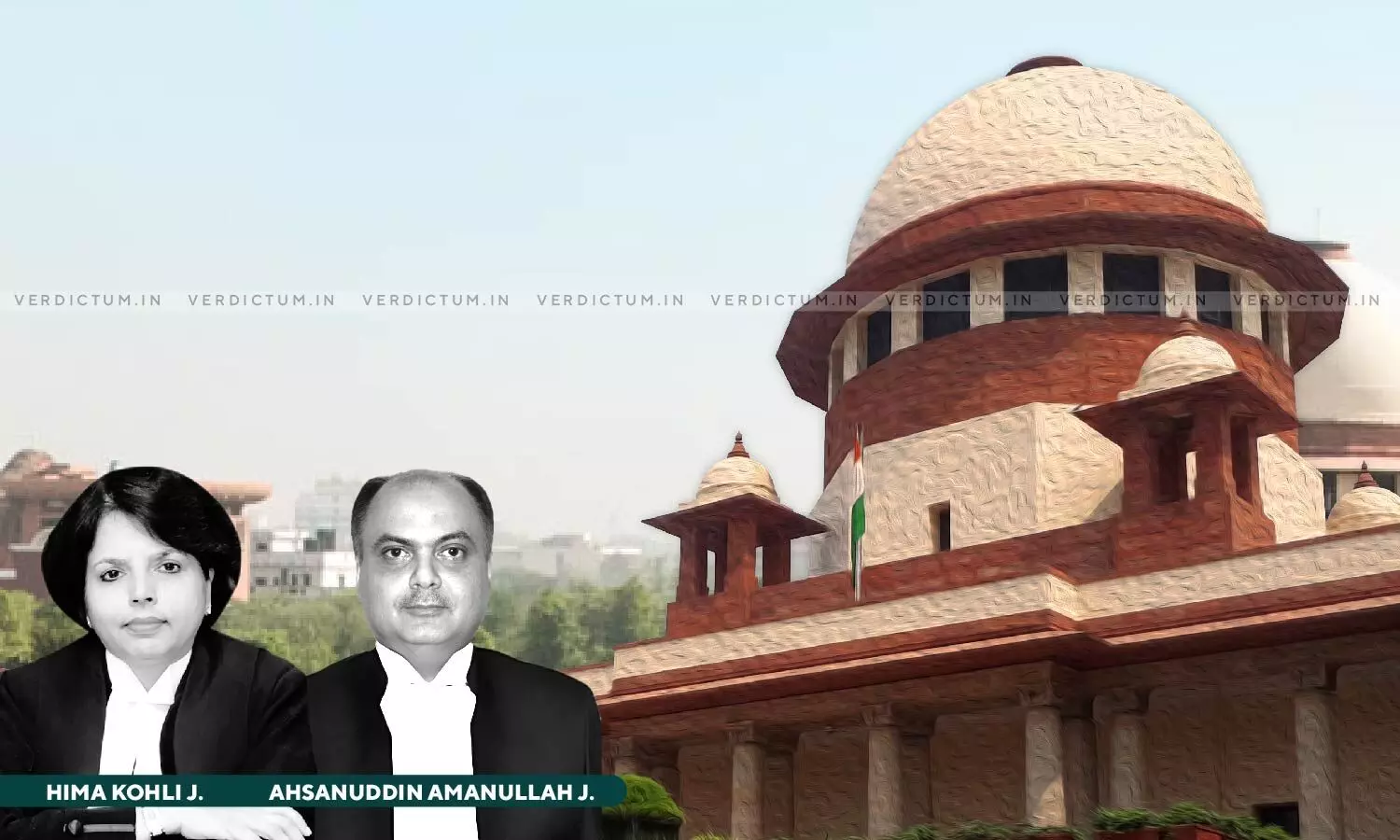
If Disciplinary Authority Accepts Enquiry Officer's Findings, Elaborate Reasons To Impose Punishment Are Not Required: SC
 |
|The Supreme Court observed that no elaborate reasons are required by disciplinary authority to impose a punishment on an employee once findings recorded by the enquiry officer are accepted.
The Court clarified that going forward, wherever and whenever the Disciplinary Authorities concerned impose a major punishment, it should be appropriate for their orders to engage with the representations/submissions of the delinquent employees concerned.
A Bench of Justice Hima Kohli and Justice Ahsanuddin Amanullah observed, “It is well-settled that if the Disciplinary Authority accepts findings recorded by the Enquiry Officer and proceeds to impose punishment basis the same, no elaborate reasons are required."
Advocate Vishal Meghwal appeared for the appellants, while Advocate K. Vijayan represented the respondent.
The employee (respondent) was placed under suspension in contemplation of departmental enquiry for having committed various irregularities. The Departmental Promotion Committee (DPC) did not find the respondent fit for promotion as he was under suspension on that day. After completion of the enquiry and post the charges were proved, the respondent was removed from service.
The respondent challenged the suspension and removal order before the Rajasthan High Court. The single bench quashed the said orders and directions were issued to reconsider the respondent’s case for promotion.
The Division Bench of the High Court upheld this order holding, “Courts will not act as an Appellate Court and re-assess the evidence led in domestic enquiry, nor interfere on the ground that another view was possible on the material on record. If the enquiry has been fairly and properly held and findings are based on evidence, the question of adequacy of evidence or reliable nature of the evidence will be no ground for interfering with the finding in departmental enquiry. However, when the finding of fact recorded in departmental enquiry is based on no evidence or where it is clearly perverse then it will invite the intervention of the court.”
The appellants challenged the decision of the Division Bench.
The Supreme Court held that the judgments delivered by the Single as well as the Division Bench of the High Court were both unsustainable. The Court observed that although reappraisal of facts and evidence is not impermissible by the High Courts, it must be done when the infirmity in the underlying order is greater than ordinary.
The Court was surprised to note that the High Court discussed the position of law relating to non-interference by the Appellate Court to re-assess the evidence in an enquiry or to interfere on the ground that another view was possible on the material on record, and yet the Division Bench went on to record that the Single Bench had rightly held that the enquiry proceedings were vitiated as they were based on no evidence.
"Evidently, while reappraisal of facts and evidence is not impermissible by the High Court, the infirmity in the underlying order has to be greater than ordinary. It is not the respondent’s case that due to omissions by the appellants in substantive and/or procedural compliances, prejudice has ensued to him,” the Bench remarked.
Consequently, the Court restored the Removal Order passed by the Disciplinary Authority. However, payments made to the employee were directed to not be recovered considering he was aged and retired.
Accordingly, the Supreme Court disposed of the appeal.
Cause Title: The State Of Rajasthan & Ors v. Bhupendra Singh (Neutral Citation: 2024 INSC 592)
Appearance:
Appellants: Advocates Vishal Meghwa, B.S. Rajesh Agrajit, Yashika Bum, Jagdish Chandra Solanki and Dipti Singh; AOR Milind Kumar
Respondent: Advocates K.vijayan; AOR T.R.B. Sivakumar